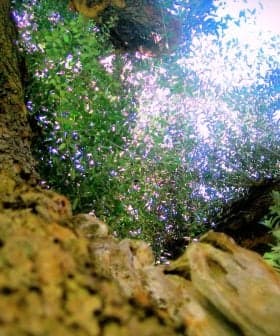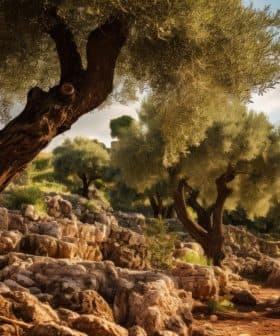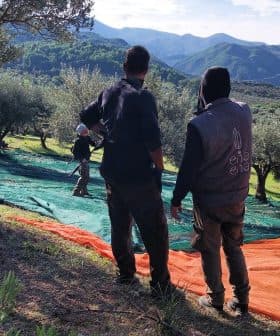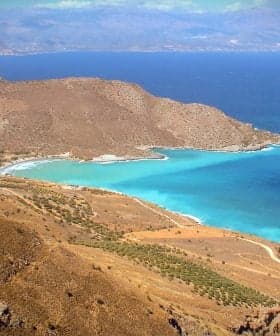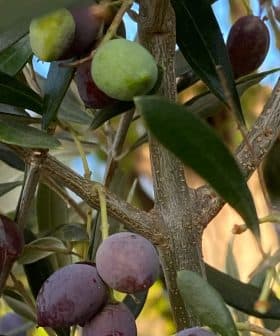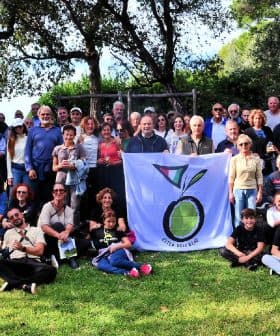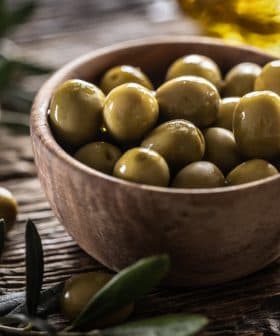Olive Oil Permeates Greek Social Fabric in Time of Need
In the Greek olive oil sector, harvest challenges, prices, and markets are major concerns, but the olive tree also plays a significant role in Greek society beyond business. Social service programs in Crete and mainland Greece distribute free olive oil to vulnerable groups, while farmers in Trikala are expanding olive groves to diversify crops and adapt to climate change. Additionally, olive groves on Lesvos and initiatives like OlixOil’s online shop demonstrate the environmental benefits and adaptability of the olive tree industry.
Harvest challenges, prices and international and domestic markets tend to be the prevailing concerns in the Greek olive oil sector.
However, there are plenty of other ways the olive tree plays a role in Greek society, outside of business boundaries.
In Crete, the beneficiaries of the Heraklion social services program received free olive oil through a local grocery store.
The olives were harvested from about 1,300 of the municipality’s olive trees by citizens belonging to vulnerable social groups. The program’s benefits were two-fold: participants gained paid employment and supplied the community store with fresh, local olive oil.
See Also:Greek Painter Dedicates Athens Mural to the History of Olive Oil ProductionOn the Greek mainland, in southern Peloponnese, the Gytheio hunting club bought olive oil from local mills and offered it to families in need of food and other essential supplies.
A similar initiative took place in Etoliko in the western part of continental Greece. The local olive oil association donated some of the season’s olive oil to welfare centers and social establishments.
Besides their substantial contribution to the Greek agricultural sector, olive trees have also endowed the country with environmental and aesthetic benefits.
In Egaleo, a municipality of the Athens metropolitan area, fourteen poorly-placed centenarian olive trees were transferred from the municipal grove and replanted in other spots around the metro area to better develop and exhibit their symbolism and importance to the environment.
“The olive tree is a symbol of our country, history and culture,” the mayor of Egaleo, Yiannis Gkikas, said. “We have already planted small olive trees at places downtown. Now, we took an important initiative of replanting and growing centenarian [olive] trees in our city, to preserve a precious part of nature.”
“At the same time, we elevate our city and upgrade its urban fabric,” he added. “Citizens will now walk more harmoniously in the city.”
Planting olive trees can also be a solution for farmers looking to diversify their crop portfolio.
In the mountainous region of Trikala, in central Greece, cotton and wheat are the agricultural staples. However, existing olive groves are being expanded. About 100 hectares of olive trees were planted last year, bringing the total cover of olive trees in the region to about 1,400 hectares.
The area is expected to produce around 300 tons of olive oil this season, a fraction of the yield of the country’s typical producing territories, but still a substantial output for local producers.
According to Alexandros Papahatzis, a professor of arboriculture at the University of Thessaly, olive tree cultivation has become increasingly appealing to local farmers.
The farmers have been searching for a long-living traditional crop that is also well-adapted to the area’s microclimate, which has experienced increasingly warmer winters due to climate change.
The typical olive cultivars in the area are Megaritiki and Konservolia, with the fruits of the latter used for table olive production as well.
However, Papahatzis advised the farmers to turn to olive cultivars that are more resilient to lower temperatures, such as the Maronia, which is native to the northern area of Komotiniand, and Serres Leykolia varieties. The latter can even withstand the weight of snow due to its hanging and flexible branches.
Apart from growers, new olive groves can also benefit the environment, as an olive farm on the island of Lesvos has demonstrated.
Near the small town of Sigri, a previously barren area has been transformed to a vast farm of 40,000 olive trees, comprising twelve Greek and other Mediterranean olive varieties on the western side of the island.
The surroundings of Sigri are rocky, and the existing oak trees had been cut down for firewood before Antonis Tripintiris decided to start his olive farm on the rocky and dry land.
“We have a lot of sun, but we also have rain,” Tripintiris said. “We planted the olive trees by literally digging up the rock and we used seaweed compost as well as organic livestock manure as fertilizer. At the same time, we have created biodiversity on our farm with fig, almond trees, pomegranate and even palm trees.”
“The 40,000 olive trees on our farm counterbalance the carbon footprint of 2,000 people,” he added. “They reduce the greenhouse emissions and their roots protect the soil from erosion. The shade of the trees reduces the atmospheric temperature and tempers the intensity of the wind. The soil becomes fertile, regenerating flora and fauna of our village.”
Sometimes olive oil sector professionals relegate their sheer business operations and turn the spotlight on other important matters that stem from the prevailing circumstances like the long-lasting coronavirus pandemic.
Prodromos Saliagkas of OlixOil has set the company’s priorities to respond to the requirements of the time. “Our philosophy, as a company, is to meet the needs of all our customers around the world,” Saliagkas told Olive Oil Times.
“We want to make them know the Greek flavors which have been praised worldwide and to be able to enjoy the benefits of the best diet in the world, the Mediterranean. In these difficult times, however, It is our top priority to protect our people, internally and externally, stay safe and healthy, while at the same time continue being fully operative in all aspects of the business,” he added.
Saliagkas said that, due to the conditions, part of their business had been transferred online. An e‑shop was launched for their extra virgin olive oil Ladelia, a Silver Award winner in the 2020 edition of the NYIOOC World Olive Oil Competition.
“We consider it as our responsibility and duty to continue to offer our services and provide fresh and healthy products as a small contribution to this great, global struggle,” he concluded.


